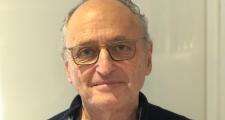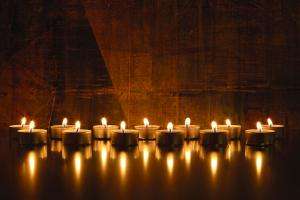‘As a Jew, I have never felt more fearful or vulnerable’

The “tropes and hates” that gave rise to the Nazis in 1930s Germany are being seen again around the world, including in the UK, a Jewish social worker has warned.
Speaking on Holocaust Memorial Day, Serge Paul said there are worrying similarities between then and now in how minority groups are scapegoated.
Paul, whose family members were among the six million Jews murdered by Hitler’s brutal regime, added he has never felt more concerned for the future than now.
“Today, I remember my grandmothers, all my uncles and aunts on both sides of the family, all the cousins, some born a little before I was born, who were murdered in the Holocaust,” he said.
“I remember the family members who survived the ghetto and the concentration camps or were hidden by decent and brave people and my own parents, my sister and cousin who escaped together by crossing the Pyrenees, my last remaining cousin, Lili who was hidden by Nuns and all who suffered in the horror.
“In doing so, I look at a world full of hate for others and ask what has really changed? No one can ignore the rise of racism, Islamophobia and, of course, Antisemitism.
“I see the UK surrounded by a rise in fascism and populism, I see colleagues and friends subjected to Antisemitism and racism and attitudes that indicate that the tropes and hates of the 1930s have returned to haunt all minorities.”
Paul called on the UK government to do more to stem the rise of fascism and misinformation, stoked by populist politicians and online websites.
“As a Jew, I have never felt more vulnerable or fearful of the state of our country,” he added.
“The UK needs to wake up and stand up and bring us all together otherwise our children will inherit the worst of humanity.”
He also highlighted the fear felt by minorities in America under president Donald Trump.
“His rhetoric of othering and the stirring up of hate and blame towards minority groups in the US is deeply troubling. Nationalism is on the rise once more, in America and elsewhere. As social workers we are meant to be on the frontline of humanitarian care. We must remember the past and learn."
This year’s Holocaust Memorial Day coincides with the 80th anniversary of the liberation of Auschwitz-Birkenau, the largest of the Nazi concentration camps.
More than 1.1 million people, 90 per cent of them Jewish, were murdered on an industrial scale at the notorious death camp in Poland. By 1944, it was killing 12,000 people every day in its gas chambers.
The Holocaust Memorial Day Trust has also expressed concern about the rise in hate, particularly in wake of the war in Gaza.
In a statement on its website, it said: “Eighty years on from the liberation of Auschwitz-Birkenau, Antisemitism has increased significantly in the UK and globally following the 7 October attacks in Israel by Hamas and the subsequent war in Gaza.
“Extremists are exploiting the situation to stir up anti-Muslim hatred in the UK. Many UK communities are feeling vulnerable, with hostility and suspicion of others rising.”
Prime minister Keir Starmer pledged to ensure all schoolchildren learn about the Holocaust, including hearing survivor testimonies, to develop "empathy for others" and "defeat the hatred of difference".
He said: “The Holocaust was a collective endeavour by thousands of ordinary people utterly consumed by the hatred of difference. That is the hatred we stand against today and it is a collective endeavour for all of us to defeat it.
“We must start by remembering the six million Jewish victims and by defending the truth against anyone who would deny it.
“But as we remember, we must also act. Because we say, “never again” – but where was never again in the genocides of Cambodia, Rwanda, Bosnia and Darfur – and where is never again as Antisemitism kills Jewish people still?"
Starmer added the warning of the Holocaust was "to make 'never again' finally mean what it says: never again".
“Today, we have to make those words mean more. We will make Holocaust education a truly national endeavour. We will ensure all schools teach it and seek to give every young person the opportunity to hear a recorded survivor testimony, because by learning from survivors we can develop that empathy for others and that appreciation of our common humanity, which is the ultimate way to defeat the hatred of difference."

